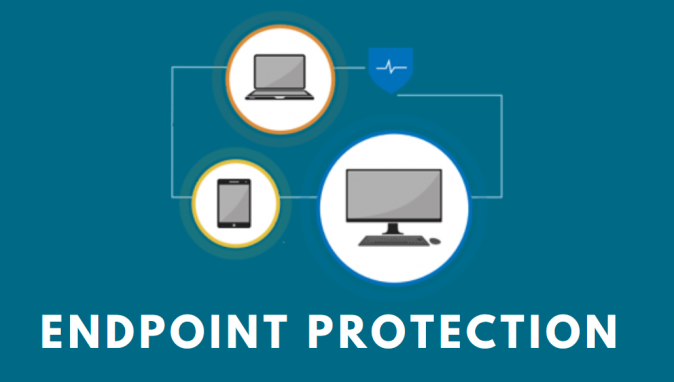Blog
What is Endpoint Security & How it works?

Endpoint Security
When the scale and pace of security breaches grows, organizations constantly look for sophisticated ways to improve their security posture. While network loopholes are easy to identify and correct, malware, which is often driven by human behavior is impossible to predict – especially when an increasing number of employees today access corporate networks via remote devices. Increasingly, enterprises and their employees are incorporating practices to make access to data more fluid. The increase in BYOD (bring your own device) policies, in addition to threats targeting mobile device access and networks, create multiple endpoint vulnerabilities. In addition, employees working from home or connecting to Wi-Fi networks to work on-the-go means that the enterprise network security perimeter is more porous than ever.
In the past, most security breaches came in through the network. Today, however, threats are increasingly coming in through endpoints, which means centralized network protection does not go far enough. Shifting security perimeters that lack a clear definition requires new layers of security through endpoint protection. Security must maintain greater control over access points to prevent the vulnerabilities that can arise through the use of remote devices. Since attackers constantly look for new and improved tactics to enter corporate networks, organizations have to be a step ahead – so they can protect entry points, avert security incidents, and minimize their impact. That’s where Endpoint Security comes into picture which is designed to secure each endpoint on the network created by these devices.
What Is Endpoint Security?
Endpoint security refers to securing endpoints, or end-user devices like desktops, laptops, and mobile devices. Endpoints serve as points of access to an enterprise network and create points of entry that can be exploited by malicious actors. Endpoint security software protects these points of entry from the risky activity and/or malicious attacks. Endpoint security or endpoint protection supplements an organization’s already existing centralized security measures with additional protection at endpoints on a network including user-operated mobile devices, laptops, servers, and desktop PCs. Endpoint security has evolved from traditional antivirus software to providing comprehensive protection from sophisticated malware and evolving zero-day threats.
It helps bridge the security gap that exists between a company network and the devices that are used by its workforce. Through the use of modern antivirus, firewalls, and a host of intrusion prevention systems, endpoint security can help:
֎ Detect, prevent, and respond to sophisticated endpoint threats by leveraging modern anti-virus, anti-malware, and anti-evasion capabilities.
֎ Prevent data loss that happens as a result of insider threats, poor email encryption, and poor network and user access controls.
֎ Protect businesses from a major security breach and catch security issues before they become a harmful threat to the company’s bottom line.
֎ Increase organizations’ security hygiene through a resilient and effective risk management strategy and a foundation of security core competencies.
How Does Endpoint Protection Work?
Endpoint security is the practice of safeguarding the data and workflows associated with the individual devices that connect to your network. Endpoint security works by allowing system administrators (in business applications) to control security for corporate endpoints using policy settings, depending on the types of protection or web access employees and systems require.
With every device, such as smartphones, tablets, and laptops, providing a large entry point for threats, endpoint security aims to adequately secure every endpoint in the network and block access attempts at these points of entry. By making use of advanced security systems and software located on a centrally managed and accessible server or gateway within the network, it authenticates logins from the various endpoints while constantly updating device software when needed.
Endpoint security mandates endpoint devices to meet a set of pre-established security standards prior to being granted network access. Such controlled access enables enterprises to maintain greater control over the ever-growing number of access points and more effectively block threats and unlawful access attempts to the corporate network. In addition to controlling access, endpoint security tools also offer capabilities for monitoring the network and blocking risky or malicious activities.
It encrypts enterprise data on endpoint devices as well as across individual folders, files, and removable storage devices. In the event of a breach, such encryption ensures enterprise data is protected against attack. In addition, endpoint protection also prevents unauthorized access or the use of applications that are unsafe or could open the doors to further vulnerabilities.
Why Is It Important to Have in Practice?
For organizations looking to safeguard their businesses from imminent threats, having an endpoint security practice in place is a must-have. With endpoint security, organizations can
֎ Leverage a robust protection suite to detect and respond to past, present, and future threats.
֎ Constantly scan endpoints for risks and drive threat intelligence reporting.
֎ Secure enterprise data available on mobile devices and ensure data is protected and prevent any misuse.
֎ Carry out effective threat modeling using advanced methodologies and frameworks and ensure advanced malware protection.
֎ Enable automated agent-based scanning to detect, prevent, and respond to threats.